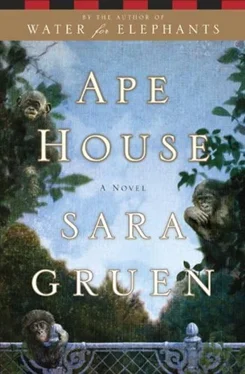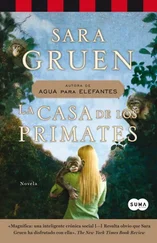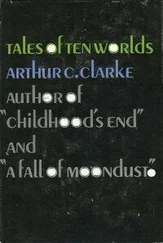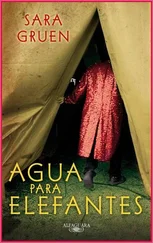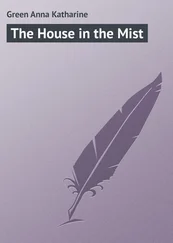“Excuse me.”
John looked up to find a man standing in the aisle, unable to move past John’s legs. John shifted sideways and wrangled them into Osgood’s space, which elicited a grunt. When the man passed, John returned his legs to the aisle and as he did so caught sight of a woman three rows up holding a book whose familiar cover shot a jolt of adrenaline through him. It was his wife’s debut novel, although she had recently forbidden him from using that particular phrase since it was beginning to look as though her debut novel was also going to be her last. Back when The River Wars first came out and John and Amanda were still feeling hopeful, they had coined the phrase “a sighting in the wild” to describe finding some random person in the act of reading it. Until this moment it had been theoretical. John wished Amanda had been the one to experience it. She was in desperate need of cheering up, and he’d very nearly concluded that he was helpless in that department. John checked for the location of the flight attendant. She was in the galley, so he whipped out his cell phone, rose slightly out of his seat, and snapped a picture.
The drinks cart returned; Cat bought more gin, John ordered coffee, and Osgood continued to rumble subterraneously while his human cushion glowered.
John got out his laptop and started a new file:
Similar to chimpanzees in appearance but with slimmer build, longer limbs, flatter brow ridge. Black or dusky gray faces, pink lips. Black hair parted down the center. Expressive eyes and faces. High-pitched and frequent vocalizations. Matriarchal, egalitarian, peaceful. Extremely amorous. Intense female bonding.
Although John had known something of the bonobos’ demonstrative nature, he had been initially caught off-guard at the frequency of their sexual contact, particularly between females. A quick genital rub seemed as casual as a handshake. There were predictable occurrences, such as immediately before sharing food, but mostly there was no rhyme or reason that John could ascertain.
John sipped his coffee and considered. What he really needed to do was transcribe the interview with Isabel while he could still recall and annotate the non-aural details: her expressions and gestures, and the moment-unexpected and lovely-when she’d broken into ASL. He plugged his earphones into his voice recorder, and began:
ID: So this is the part where we talk about me?
JT: Yes.
ID: [ nervous laugh ] Great. Can we talk about someone else instead?
JT: Nope. Sorry.
ID: I was afraid of that.
JT: So what made you get into this type of work?
ID: I was taking a class with Richard Hughes-he’s the one who founded the lab-and he talked a little about the work he was doing. I was utterly fascinated.
JT: He passed away recently, didn’t he?
ID: Yes. [ pause ] Pancreatic cancer.
JT: I’m sorry.
ID: Thank you.
JT: So anyway, this class. Was it linguistics? Zoology?
ID: Psychology. Behavioral psychology.
JT: Is that what your degree is in?
ID: My first one. I think originally I thought it might help me understand my family-wait, can you please scratch that?
JT: Scratch what?
ID: That bit about my family. Can you take it out?
JT: Sure. No problem.
ID: [ makes gesture of relief ] Whew. Thanks. Okay, so basically I was this aimless first-year kid taking a psychology class, and I heard about the ape project and I went, and after I met the apes I couldn’t imagine doing anything else with my life. I can’t really describe it adequately. I begged and pleaded with Dr. Hughes to be allowed to do something, anything. I would mop floors, clean toilets, do laundry, just to be near them. They just… long pause, faraway look ]… don’t know if I can say what it is. It just… s. I felt very strongly that this was where I belonged.
JT: So he let you.
ID: Not quite. [ laughs ] He told me that if I took a comprehensive linguistics course over the summer, read all his work, and came back to him fluent in ASL he’d think about it.
JT: And did you?
ID: [ seems surprised ] Yeah. I did. It was the hardest summer of my life. That’s like telling someone to go off and become fluent in Japanese over four months. ASL is not simply signed English-it’s a unique language, with a unique syntax. It’s usually time-topic-comment-oriented, although like English, there’s variability. For instance, you could say [ starts signing ], “Day-past me eat cherries,” or you could say, “Day-past eat cherries me.” But that is not to say that ASL doesn’t also use the subject-verb-object structure; it simply doesn’t use “state-of-being” verbs.
JT: You’re losing me.
ID: [ laughs ] Sorry.
JT: So you came back, you blew him out of the water, and you got the job.
ID: I don’t know about blowing him out of the water…
JT: Tell me about the apes.
ID: What about them?
JT: Seeing you with them today, and then speaking with them myself, and then managing to actually insult one of them-that was an eye-opener.
ID: He got over it.
JT: No. He didn’t. But do you understand how strange that whole thing would seem to your average, everyday person? The concept that you can insult an animal in a social situation and have to make it up to him? And possibly fail? That you can have a two-way conversation with apes, in human language no less, and they’re doing it simply because they want to?
ID: By Jove, I think he’s got it!
JT: I suppose I had that coming.
ID: I’m sorry. But yes, that’s the entire point of our work. Apes acquire language through exposure and a desire to communicate, just like human infants, and age-wise there is approximately the same window of opportunity. Although I’d like to branch out a little going forward.
JT: How so?
ID: Bonobos have their own language. You saw that today-Sam told Bonzi exactly where he’d hidden the key, even though they were in separate rooms and couldn’t see each other. She went straight for it and never looked anywhere else. We may never be able to use their vocalizations to communicate with them for the same reasons they can’t use spoken English-our vocal tracts are shaped too differently, which we think is related to the HAR1 gene sequence, but I think it’s high time someone made an attempt to decode it.
JT: About the sex.
ID: What about it?
JT: There’s just so much of it. And they’re so… irtuosic. It’s clearly not just about procreation.
ID: Absolutely right. Bonobos-along with dolphins and humans-are the only animals known to have recreational sex.
JT: Why do they do that?
ID: Why do you do it?
JT: Uh… kay. Moving right along.
ID: I’m sorry. That’s a fair question. We believe it’s a mechanism to relieve tension, resolve conflict, and reaffirm friendship, although it also has to do with the size of the females’ clitorises and that they are sexually receptive regardless of estrus. Whether this shapes or reflects bonobo culture is a matter of scientific debate, but there are several related factors: food is abundant in their natural habitat, which means the females aren’t in competition to feed their babies. They form strong friendships and band together to “correct” aggressive males, thus keeping those genes from entering the pool, and so, unlike chimpanzees, male bonobos do not practice infanticide. Maybe it’s because no male has any idea which babies are his, or maybe it’s because the males who are allowed to breed don’t care and that trait is passed along. Or maybe it’s because the females would rip him to shreds. Like I said, it’s a matter of some debate.
JT: Do you think the apes know they’re apes, or do they think they’re human?
Читать дальше
